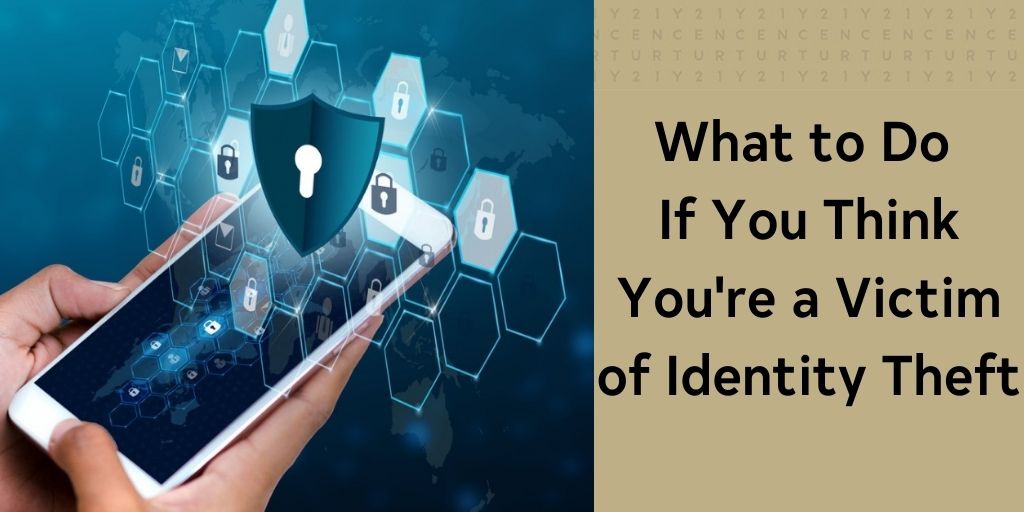

What Should You Do If Someone Steals Your Identity, as Carefull explains?
If you see unfamiliar charges on your credit card or bank withdrawals you can’t explain, you might be the victim of identity theft. Somehow, a thief has gotten your personal information and is using it to rip you off. Once scammers have enough information, they can do things like empty your bank accounts, run up charges on your credit card (or open new accounts in your name), and steal your Social Security benefits or tax refund. Even a relatively short-term impact, such as waiting up to 90 days to have stolen money returned to your account, can be financially devastating.
It’s essential that you take steps right away to fix a case of stolen identity. The longer you wait, the more the thief can complicate your life. Here’s what you need to do.
What should you do if you’re the victim of identity theft?
Report it! Contact the Federal Trade Commission by phone at 1-877-438-4338 or online at IdentityTheft.gov.
If you do this by phone, you will not receive an Identity Theft Report from the FTC. This report is useful when dealing with creditors, the credit bureaus and law enforcement.
However, if you contact the FTC online, you get the report plus the chance to create an account with IdentityTheft.gov. The account lets you track your progress as you deal with the fallout and includes useful resources such as sample letters that you can send to creditors and others.
Should you contact the police?
Maybe. It might be necessary if the following situations apply to you:
- One of the defrauded creditors requires you to submit a police report.
- The ID thief gave your name instead of their own during an interaction with law enforcement.
- You know who stole your identity, such as a relative or someone you hired to do work around your home.
When filing a report with law enforcement, bring a government-issued photo ID, proof of address (utility bill or mortgage statement/rental agreement), and a copy of your FTC Identity Theft Report. State that your identity has been stolen and you need to file a report. Then make sure to get a copy of the report.
Should you report ID theft to government agencies?
Certain kinds of identity theft need to be reported to their respective agencies:
Medicare or medical insurance. If you have Medicare and thieves have used your information to file fraudulent claims, get in touch with the Medicare fraud office. With private medical coverage, contact the insurer.
Unemployment identity theft: Contact your state’s labor department.
Income tax identity theft. Get in touch with the Internal Revenue Service if someone has filed a fraudulent return in your name. You’ll likely need to complete IRS Form 14039, Identity Theft Affidavit.

Other steps to take
Place a fraud alert. This free service makes it more difficult for scammers to open new accounts using your identity because it requires lenders to verify your identity before extending credit in your name. To place the alert, contact any of the three major credit bureaus; that company will then contact the other two on your behalf.
Here are the addresses to use:
- Equifax.com fraud alert or 1-888-766-0008
- Experian.com/fraudalert or 1-888-397-3742
- TransUnion.com/fraud or 1-800-680-7289
You’ll get a letter from each credit bureau to confirm that it has they placed a fraud alert on your file. You may also choose to request an “extended fraud alert” (good for seven years) or a credit freeze (which lasts until you lift it) from each credit bureau. Both options are also free.
Freeze your credit. For a greater level of protection, consider using a credit or security freeze. This prevents new creditors from accessing your credit reports. You’ll need to lift the freeze if you want to open new lines of credit. But it will stop any attempts from thieves who try to open credit in your name.
If you place a security freeze on your credit report with one credit bureau, it will not report the freeze to the other bureaus. You will need to place freezes on your reports at each of the three credit bureaus.
Get your credit reports. To get free copies of your credit reports, visit annualcreditreport.com or call 1-877-322-8228. If you’ve already ordered your free reports this year, you can either pay for a new one or use each bureau’s fraud alert confirmation letter to request a free report. (Note: Until April 21, 2022, you can get free credit reports as often as weekly from all three bureaus.) Review your reports to see if there are any transactions or accounts that were not yours.
Alert companies that your identity has been stolen. Call the businesses where fraudulent accounts or transactions have been made in your name. Ask for the fraud department, state that your identity has been stolen, and ask them to close or freeze the accounts. If you already have an account at any of these companies, change your login, password and PIN. (Note: You might need to contact them again once you’ve created an Identity Theft Report with the FTC.)
Contact Us:
Facebook: https://www.facebook.com/getcarefull/
Instagram: https://www.instagram.com/getcarefull/
Twitter: https://twitter.com/getcarefull?lang=en
Youtube: https://www.youtube.com/channel/UCbrtQtmYF_WNlXb_6FsIifA
Linkedin: https://www.linkedin.com/company/getcarefull
Email: hello@getcarefull.com
Phone No: +1 833-836-0050
Related Posts
© 2024 Invastor. All Rights Reserved






User Comments